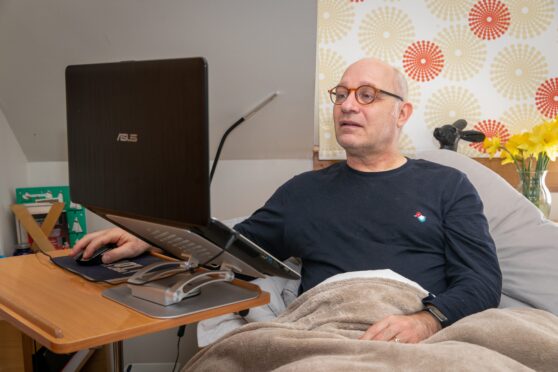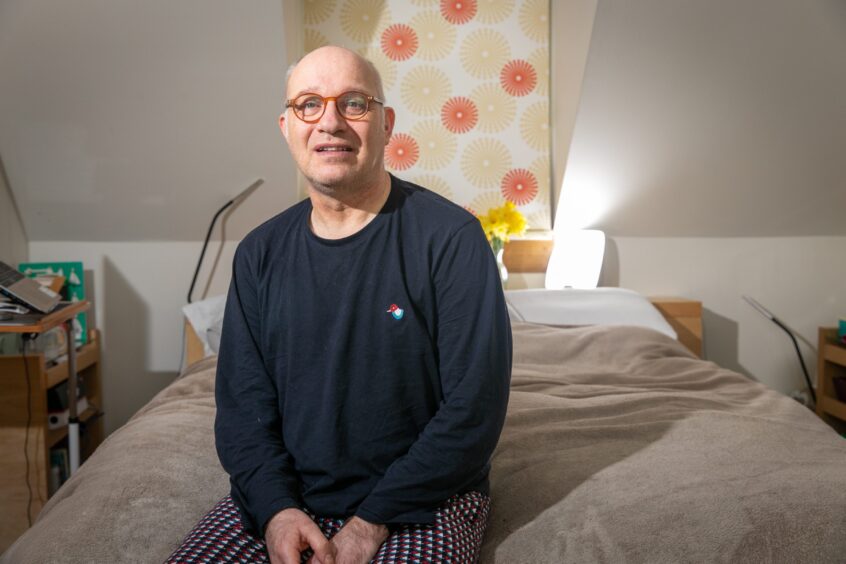
A research scientist who devised cutting edge tools for keyhole surgery is now unable to work because he has ME.
Stuart Brown 56, claims he and other chronic fatigue patients are being denied treatment laid down in NHS guidelines.
The former researcher at Dundee University, who worked with the groundbreaking keyhole surgery team at Ninewells Hospital in Dundee, says he is so exhausted some days he can hardly get out of bed and that even reading is tiring.
He said: “Guidelines were set out in 2021 by the National Institute for Health and Care Excellence (NICE) and the Scottish Government gave health boards money to fund treatment but no one in our ME group has received any.
“I had to give up my job 18 months after developing ME and miss it dearly. The satisfaction in helping patients undergo safer and less intrusive surgery was huge and I would like to recover and return to work.
“Most others with ME would love to get a reasonable quality of life back and want to contribute to the workplace but, with little medical support, the chances are much less likely.”
More than 60,000 people are living with ME in Scotland but, Brown says, the number is likely to be higher as it can go without being diagnosed.
The Scottish Government published a survey into how well the NICE guidelines were working.
It revealed that they varied hugely from generalist to specialist support by trained staff. More than half of the health boards did not have specific ME systems of care.
Brown said: “Many of us feel abandoned when it is obvious that ME is a debilitating as other chronic illnesses.
“If money was given by the Scottish Government for health boards to support patients we would like to know why we are not getting it.”
A story ‘all too common’
Sonya Chowdhury, CEO for charity of Action for ME, said: “Stuart’s story is all too common. As many as 1.3 million people are affected by ME or similar symptoms across the UK and they are too often overlooked.”
The plea for treatment comes as pioneering research at Edinburgh University’s MRC Human Genetic Unit works to uncover genetic causes of ME. Action for ME are partnering with the University on the DecodeME study – and Brown is a participant.
NHS Tayside said, “Our teams follow the NICE guidelines to provide the very best care. However, there are occasions where clinicians may suggest alternative treatments for patients outwith NICE guidance.
“These decisions will be made in full consultation with patients, their families and support network. If patients have any concerns, we would encourage them to speak with their GP or the team in charge of their care.”
The Scottish Government said: “ME/CFS can present a broad range of symptoms, and we know there’s no ‘one-size fits all’ response. We want to support people with ME/CFS to access care and support in an appropriate setting and as close to home as practicable.
“Our recent analysis of health board data on ME/CFS care has given a clearer picture of service provision and we are carefully considering this with the aim of identifying areas where there is the potential to support service development.”

Enjoy the convenience of having The Sunday Post delivered as a digital ePaper straight to your smartphone, tablet or computer.
Subscribe for only £5.49 a month and enjoy all the benefits of the printed paper as a digital replica.
Subscribe © Steve Brown / DC Thomson
© Steve Brown / DC Thomson